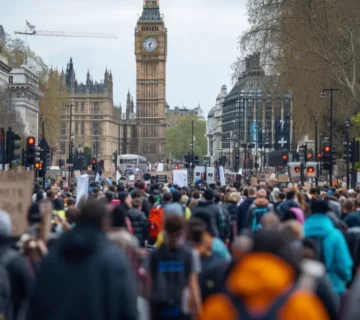Understanding the role of the Police and Crime Commissioner (PCC) in Wales is crucial for appreciating the intricacies of local governance and law enforcement oversight. The PCC is a pivotal figure in the Welsh justice system. The PCC is responsible for ensuring that policing meets the community’s needs. Interestingly, as we discuss the role and impact of the PCC in Wales, it’s worth noting that today also marks the elections in Cornwall. It reflects a broader context of regional political activity within the UK.
The Role of the Police and Crime Commissioner
Overview of Responsibilities
The Police and Crime Commissioner in Wales has a wide array of responsibilities, ranging from strategic oversight of policing to ensuring that police forces are accountable to their communities. The PCC sets priorities through a police and crime plan, allocates the budget, and appoints (or dismisses) the Chief Constable.
Strategic Planning and Community Safety
One of the PCC’s primary duties is developing a comprehensive strategy that outlines the police force’s priorities and objectives over several years. This involves engaging with the community to understand their concerns, which directly influences the strategic direction of local policing. The PCC also works closely with other agencies to enhance community safety and reduce crime, ensuring a collaborative approach to addressing public safety issues.
Budgeting and Resource Allocation
The PCC has a significant responsibility for managing the police budget. They must ensure that resources are used efficiently to maximize the effectiveness of policing services. This includes making tough decisions on funding allocation and potentially funding community projects that aim to prevent crime.
Transparency and Accountability
The PCC is crucial in maintaining transparency and accountability within the police force. They are expected to hold the Chief Constable accountable for police performance. They ensure that the force acts efficiently and effectively. Furthermore, the PCC is responsible for ensuring that the police are responsive to the public’s needs and expectations.
Impact of the Police and Crime Commissioner
Enhancing Police Effectiveness
Since the introduction of the PCC, there have been notable changes in how policing is conducted in Wales. The role allows for a more localized approach to tackling crime. It can be more sensitive to the specific needs of different communities within Wales.
Challenges and Criticisms
While the role is designed to bridge the gap between the police and the community, it has not been without its criticisms. Issues such as political influence and the PCC’s effectiveness in reducing crime rates have been debated.
Community Involvement
The PCC has an obligation to engage with the community and gather feedback on policing. This engagement is vital for shaping policies and strategies that reflect the public’s concerns and enhance the trust and cooperation between the police and the community they serve.
Conclusion
The Police and Crime Commissioner in Wales serves as a linchpin in the realm of public safety and justice. By overseeing the police and ensuring they align with the community’s needs, the PCC plays a foundational role in the landscape of Welsh governance. As regions like Cornwall go to the polls today, the importance of such roles remains a significant point of public interest and discussion.
FAQs
What does the Police and Crime Commissioner do?
The PCC sets priorities, allocates police budgets, and ensures police accountability in the community.
How is the Police and Crime Commissioner elected?
The PCC is elected by the public in regular electoral cycles, similar to other political offices.
What powers does the Police and Crime Commissioner have?
The PCC can set strategic priorities, allocate funding, and appoint or dismiss the Chief Constable.
Can the public influence the Police and Crime Commissioner’s decisions?
The public can influence the PCC’s strategies through community engagement initiatives and consultations.
What is the impact of the Police and Crime Commissioner on local policing?
The PCC aims to tailor policing strategies to community needs, enhancing effectiveness and public trust in law enforcement.



